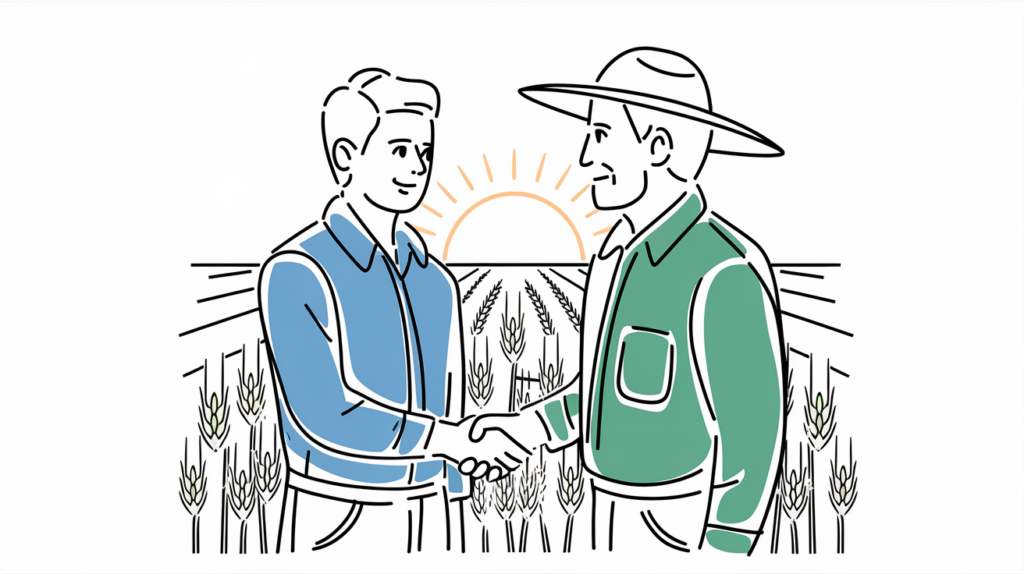Are you ready for one of the largest wealth transfers in U.S. history? Over the next two decades, an estimated $24 trillion in farmland and agricultural assets will change hands. This significant shift presents both opportunities and challenges for current landowners, aspiring farmers, and investors. At XOA TAX, we understand the complexities of this transition and offer expert guidance to help you navigate this evolving landscape.
Key Takeaways
- Trillions of dollars in farmland assets will change hands in the coming decades.
- This presents opportunities for new farmers and investors, but also risks of corporate consolidation.
- Careful planning, including succession planning and estate strategies, is crucial.
- XOA TAX provides expert advice to help you navigate this complex transition.
Introduction: A Changing Agricultural Landscape
The average age of the American farmer is nearing 60, and many are preparing to retire. This demographic shift is driving a massive transfer of farmland and related assets, creating a unique moment in American agriculture. Whether you’re a current landowner looking to preserve your legacy, an aspiring farmer seeking to enter the market, or an investor exploring new opportunities, understanding the dynamics of this wealth transfer is essential.
Understanding the Farmland Wealth Transfer
This generational shift isn’t just about land; it encompasses equipment, buildings, and other agricultural assets. Many farm families haven’t yet formalized succession plans, leaving the future of these operations uncertain. This uncertainty can lead to family disputes, forced sales, and the potential loss of valuable agricultural land to corporate interests.
Benefits and Challenges of the Wealth Transfer
Benefits:
- Opportunities for New Farmers: The transfer opens doors for a new generation of farmers to acquire land and revitalize the agricultural sector.
- Investment Potential: Farmland can be a stable and profitable investment, attracting both individual and institutional investors.
- Innovation and Technology: New entrants may bring fresh perspectives and adopt modern technologies to enhance productivity and sustainability.
Challenges:
- Rising Land Prices: Increased demand can drive up land prices, making it harder for new farmers to afford entry.
- Corporate Consolidation: Large agricultural companies and investors may acquire significant portions of farmland, potentially squeezing out smaller family farms.
- Complex Estate Planning: Navigating inheritance laws, tax implications, and succession planning can be overwhelming without expert guidance.
Strategies for Navigating the Wealth Transfer
For Current Landowners:
- Develop a Succession Plan: A clear succession plan ensures a smooth transition of assets to the next generation, minimizing family conflicts and preserving your legacy. XOA TAX can assist with the intricate tax and legal aspects of succession planning.
- Explore Estate Planning Options: Trusts, gifting strategies, and other estate planning tools can help minimize estate taxes and protect your assets.
- Consider Conservation Easements: Conservation easements can protect your land from development while providing tax benefits.
For Aspiring Farmers:
- Explore Financing Options: Government programs, agricultural lenders, and creative financing arrangements can help you secure the capital needed to acquire land.
- Seek Mentorship: Connect with experienced farmers and agricultural organizations for guidance and support.
- Consider Leasing: Leasing land can be a viable option for gaining experience and building your operation before purchasing.
For Investors:
- Conduct Thorough Due Diligence: Research land values, soil quality, water rights, and other factors before investing in farmland.
- Diversify Your Portfolio: Investing in different types of farmland and agricultural commodities can mitigate risk.
- Seek Professional Advice: Consult with agricultural experts and financial advisors to make informed investment decisions.
Common Mistakes to Avoid
- Failing to Plan: Procrastinating on succession planning or estate planning can lead to costly consequences.
- Ignoring Tax Implications: Understanding the tax implications of land ownership and transfer is crucial for minimizing your tax burden.
- Overlooking Legal Considerations: Consult with an attorney to ensure all legal aspects of land ownership and transfer are properly addressed.
Legal and Regulatory Considerations
Farmland ownership and transfer are subject to various legal and regulatory requirements, including zoning regulations, environmental laws, and water rights. Navigating these complexities can be challenging, and seeking professional advice is recommended. XOA TAX can connect you with legal experts specializing in agricultural law to ensure compliance and protect your assets.
How XOA TAX Can Help
XOA TAX provides comprehensive financial and strategic guidance to individuals and businesses involved in the farmland wealth transfer. Our services include:
- Succession Planning: Developing customized succession plans that address your specific needs and goals.
- Estate Planning: Minimizing estate taxes and protecting your assets through effective estate planning strategies.
- Tax Consulting: Providing expert advice on the tax implications of land ownership and transfer.
- Financial Analysis: Evaluating the financial viability of farmland investments and agricultural operations.
Frequently Asked Questions (FAQs)
- What is a conservation easement? A conservation easement is a legal agreement that permanently limits the uses of land to protect its conservation values.
- How can I find financing for farmland? Several financing options are available, including government programs, agricultural lenders, and private investors.
- What are the tax implications of inheriting farmland? Inherited farmland may be subject to estate taxes and capital gains taxes.
Conclusion: Securing Your Agricultural Future
The farmland wealth transfer presents both opportunities and challenges. By understanding the dynamics of this transition and taking proactive steps, you can position yourself for success. XOA TAX is your trusted partner in navigating this complex landscape. Contact us today to learn how we can help you secure your agricultural future.
Contact XOA TAX at +1 (714) 594-6986 or visit our website at https://www.xoatax.com/ to schedule a consultation and discuss your specific needs.




 anywhere
anywhere  anytime
anytime